The AAG Fellows is a program, started in 2018, to recognize geographers who have made significant contributions to advancing geography.
In addition to honoring geographers, AAG Fellows will serve the AAG as an august body to address key AAG initiatives including creating and contributing to AAG initiatives; advising on AAG strategic directions and grand challenges; and mentoring early and mid-career faculty. Similarly to other scientific organizations, the honorary title of AAG Fellow is conferred for life. Once designated, AAG Fellows remain part of this ever-growing advisory body. The AAG Honors Committee has recommended these Fellows to serve as the 2019 class.
 John Agnew, University of California, Los Angeles
John Agnew, University of California, Los Angeles
John Agnew is a Professor of Geography at the University of California Los Angeles. His sustained contributions over several decades have rightfully made him one of the most respected names in human geography worldwide. He has always been strongly committed to the discipline of Geography and to the importance of communicating the significance of geographic research and education to a broad audience.
Agnew’s contributions include monographs on geopolitics that have challenged the interdisciplinary scholarly community to rethink conceptions of hegemony and sovereignty. His multiple books, scholarly articles, and book chapters prove his intellectual stature and global reputation.
In addition to serving as the President of the AAG, Professor Agnew has been recognized with an impressive array of honors including the AAG’s Distinguished Scholarship Award and the John Simon Guggenheim Memorial Foundation Fellowship. He is a Fellow of the British Academy, the Royal Geographic Society, and the American Association for the Advancement of Science.
We are therefore pleased to bestow upon John Agnew the title of AAG Fellow.
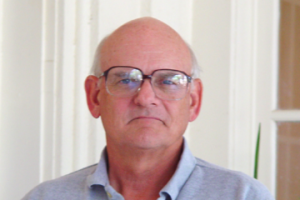 Anthony J. Brazel, Arizona State University
Anthony J. Brazel, Arizona State University
Anthony (Tony) J. Brazel is Professor Emeritus in the School of Geographic Sciences and Urban Planning at Arizona State University. His contributions to geography include his impressive scholarly record in urban climatology and his service to both research scientists and the public as the State Climatologist of Arizona and Director of the Environmental Protection Agency’s Southwest Center for Environmental Research and Policy. Furthermore, Dr. Brazel has shared his passion for research and infectious curiosity with students in a wide range of undergraduate and graduate climatology courses as well as with the 20 doctoral students he has mentored.
For these accomplishments, he has received the Arizona-Nevada Academy of Science’s Outstanding Service Award, the Helmut E. Landsberg Award from the American Meteorological Society, the Association of American Geographers Climate Specialty Group’s Lifetime Achievement Award, and has been named a Fellow of the American Association of the Advancement of Science.
Among Brazel’s more than 150 research articles and reports, he has published twice in Nature and three times in Science. These and other influential works represent major advances in understanding urban climate in desert environments. Additionally, he has served colleagues in geography and climate science through his work with the American Geographical Society, the Royal Meteorological Society, the International Association for Urban Climate, and the American Association of Geographers, where he also served on the AAG’s Scientific Freedom and Responsibility Committee.
We are, therefore, pleased to bestow upon Anthony J. Brazel the title of AAG Fellow.
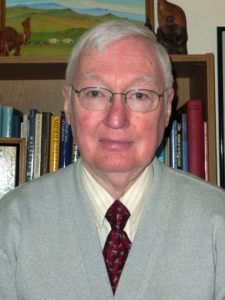
Stanley Brunn, University of Kentucky
Stanley Brunn is Professor Emeritus in the Department of Geography at the University of Kentucky. He is perhaps best known as a political geographer but has also made very significant contributions to urban and social geography. In 25 books, 80 chapters, and 100 research articles, Brunn has exemplified a non-doctrinaire and creative approach to the production of diverse geographical knowledges. In addition to contributing to existing fields, Stan has pioneered whole new areas of research, including the geographies of electronic communications, of mega-engineering projects, and a reinvigorated geography of religions.
As Editor of The Professional Geographer from 1982-1987, and as Editor of the Annals of the AAG from 1988 to 1993, Stan gave unselfishly of his time and energy to guide and develop our Association’s journals. Most recently, Brunn endowed the creation of the AAG Stanley Brunn Award for Creativity in Geography, which has recognized ground-breaking geographers such as Yi-Fu Tuan, the late Robert Kates, Susan Hanson and David Harvey, to name a few.
Brunn has taught and mentored hundreds of students at all levels and has taken a particular interest in passing along his enthusiasm for geography to beginning social studies teachers. Stan is an exceptionally generous and conscientious departmental colleague who was always willing to take on leadership roles and administrative chores without complaint. His academic leadership, his scholarship, and his generous collegiality are all exemplary and have advanced our discipline inestimably.
We are therefore pleased to bestow upon Stanley Brunn the title of AAG Fellow.
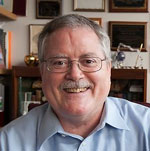
David R. Butler, Texas State University
David R. Butler has made significant contributions to the discipline of geography through his outstanding record of undergraduate teaching at Texas State University, and his trailblazing efforts to establish and promote the sub-discipline of zoogeomorphology. The latter involves the study of interactions between ecological and geomorphological processes in mountain regions. The field was codified in Butler’s seminal book, Zoo-geomorphology: Animals as Geomorphic Agents, first published in 1995 by Cambridge University Press.
Also significant is Butler’s role in mentoring the next generation of geographers, which he has achieved by supervising 17 Ph.D. and 40 Masters students. Butler’s disciplinary leadership includes serving in important editorial positions, including as Editor of the Annals of the Association of American Geographers and as Section Editor of Progress in Physical Geography. These positions sustain the discipline and define the future direction of the field. Butler is best known as someone who sees both the landscape and the literature of our discipline and communicates this connection to new scholars and other users of geographic knowledge.
David Butler is awarded the title of AAG Fellow for his contributions to physical geography, his commitment to training new geographers, his influential editorial work, and for establishing the sub-discipline of zoogeomorphology.
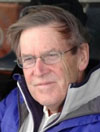
William Clark, University of California, Los Angeles
William A. V. Clark is Distinguished Research Professor in UCLA’s Department of Geography. Bill is the most prominent and influential geographer in housing, segregation and neighborhood change research over the last three decades, and is also one the leading scholars in these subjects across all the social sciences. His classic 1991 paper in Demography lit a fire under residential segregation studies by showing how applying empirically collected residential preference data to the Schelling model could explain persistence in residential spatial separation between racial and ethnic groups. His more than 500 publications have been cited nearly 15,000 times.
Clark is one of a select few geographers who has been elected to the National Academy of Sciences. He is also an elected Fellow of the American Academy of Arts and Sciences, an Honorary Fellow of the Royal Society of New Zealand, and a Guggenheim Fellow. He was awarded a Lifetime Achievement Award by the American Association of Geographers in 2018.
Bill taught legions of undergraduate and graduate students in his courses on population geography, Los Angeles, and California, and is treasured as a mentor to, and collaborator with, junior colleagues. In two terms as Department Chair, he played a crucial role in establishing successful undergraduate majors and graduate programs.
In light of his major contributions to the field as a whole, to geography at a major research university, and to his own research area, we are pleased to bestow upon William Clark the title of AAG Fellow.
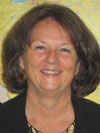
Susan Cutter, University of South Carolina
Susan Cutter is a Professor of Geography at the University of South Carolina. Her contributions as a Geographer include an extensive body of research on hazard risk, mitigation and recovery. Professor Cutter is well-known not only to academics but to practitioners in the field. She has provided expert testimony to the U.S. Congress on hazards and vulnerability; and has partnered with the US Army Corps of Engineers to evaluate the social impacts of the New Orleans and Southeast Louisiana Hurricane Protection System. Professor Cutter has served on numerous national advisory boards and committees including those of the National Research Council, the National Science Foundation, and the National Institute of Standards and Technology (NIST), and she chaired the US National Academies committee that authored the 2012 seminal report, Disaster Resilience: A National Imperative. She is a member of the Research Advisory Group for the Department for International Development in the United Kingdom, and she has served as vice-chair of a disaster-risk advisory board sponsored by the International Council for Science and the United Nations Office for Disaster Risk Reduction.
Cutter has made other substantive contributions to geographic research such as the creation of a database (SHELDUS) that spatially catalogs historical hazard damage to property and crops. SHELDUS is now a primary data source for municipal disaster planning and hazards modeling research.
Cutter is a prolific writer, publishing more than 150 peer-reviewed articles and book chapters, as well as fourteen books. Her extensive list of co-authors and co-editors speaks to her connections. She has served as co-executive editor of Environment, associate editor of Weather, Climate, and Society and as a board member for several other journals, and she is currently Editor-in-Chief for the Oxford Research Encyclopedia.
Additionally, Dr. Cutter has served the AAG in numerous positions including President; Chair, AAG Military and Geography Committee; Publications Committee; AAG Representative to COSSA; Long Range Planning Committee; Executive Director Search Committee; Honors Committee Chair; Nominating Committee; Chair of the AAG Hazards Specialty Group; and AAG Regional Councilor for the Middle States Division. The value of her work has been recognized by the AAG with the AAG Presidential Achievement Award as well as by the University of South Carolina, where Dr. Cutter is a Carolina Distinguished Professor—the highest honor bestowed upon academic faculty by the University of South Carolina.
We are therefore pleased to bestow upon Susan Cutter the title of AAG Fellow.
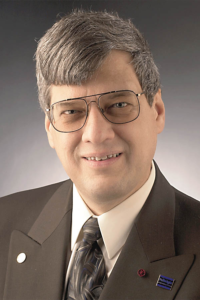 Daniel Griffith, University of Texas at Dallas
Daniel Griffith, University of Texas at Dallas
Dr. Daniel A. Griffith is Ashbel Smith Professor in the Department of Geospatial Information Science at the University of Texas at Dallas. Griffith is one of the pioneers of contemporary geography whose influence extends across spatial analysis and geostatistics, quantitative urban and economic geography, GIScience, and computational geography. He is noted for fundamental advances in spatial autoregressive modeling, and for influencing the theory and practice of spatial statistical analysis. His development of spatial filtering of regression models using eigenvectors was a major contribution that has pushed this field forward on many fronts.
Few geographers have maintained such strong, productive relationships between geography, mathematics and statistics – and fewer still have published and been cited in all three disciplines. Griffith’s many books, chapters, research papers, and other publications have attracted a host of distinctions, including elected Fellowships in the American Association for the Advancement of Science, the Regional Science Association, the American Statistical Association, and the Guggenheim Foundation. He was the winner of the inaugural AAG Nystrom Dissertation Award in 1980, and the AAG’s Distinguished Research Honors in 2010.
Griffith has served as President of the North American Regional Science Council, as Steering Committee Chair of the International Spatial Accuracy Research Association, as Chair of the Department of Geography at Syracuse University, and as editor of the journal Geographical Analysis. He has stellar record of advising students at SUNY Buffalo, Syracuse University, the University of Miami and now at the University of Texas Dallas.
For his many contributions to the advancement of Geography, we are pleased to bestow upon Daniel Griffith the title of AAG Fellow.

Jonathan Harbor, University of Montana
Jonathan Harbor is Executive Vice President and Provost of the University of Montana. Prior to this position, he taught in the Department of Earth, Atmospheric, and Planetary Sciences at Purdue University, where he also served as Executive Director of Digital Education, and Associate Vice Provost for Teaching and Learning.
Throughout his distinguished career, Dr. Harbor has founded several research institutes, including the Purdue Global Sustainability Institute and Discovery Learning Research Center. He has been granted numerous awards, including American Council of Education Fellow, Fellow of the American Association for the Advancement of Science, Fellow of the Royal Geographical Society, and Fulbright Senior Scholar, among others. These honors have been global, spanning several institutions in the United States, Sweden, China, New Zealand, and the United Kingdom. Dr. Harbor’s awards are testament to his outstanding contributions to Geomorphology, Environmental Geography, and Education Research.
Dr. Harbor has published widely in his specialties with over 200 publications dealing with a broad range of geographic interests, including environmental science, glacial research, teaching and learning, and university administration. He has authored or edited three books, including the most recent Glaciers and Glacial Landscapes in China (2014), for which he won the Scientific Excellence Prize in Gansu Province, China. He has served as editor and been on the editorial board of Anthropocene, Earth Sciences Reviews, and Physical Geography, and other top-tier journals. He is a member of AAG’s Healthy Departments Committee, has been Chair of the AAG’s Geomorphology Specialty Group, and is on the Executive Committee of the American Geophysical Union Heads and Chairs Board.
We are therefore pleased to bestow upon Jon Harbor the title of AAG Fellow.
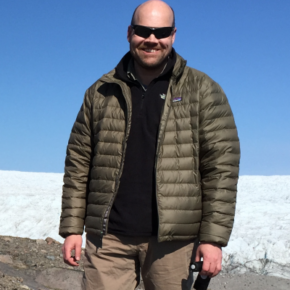 Thomas Mote, University of Georgia
Thomas Mote, University of Georgia
Thomas Mote is an internationally known scholar, award-winning instructor and mentor, respected university administrator, and engaged leader of the AAG.
Mote currently serves as Associate Dean at the University of Georgia’s Franklin College of Arts and Sciences, as well as being a Distinguished Research Professor in the Department of Geography. His research involves climate change, one of the earth’s most pressing and timely problems, which Mote approaches by participating in interdisciplinary research teams that study the effects of Greenland ice sheet melting on oceans—a major contributor to sea level rise. His research is recognized and funded, among others, by NASA, NOAA, and the USDA’s Forest Service.
Mote has been honored by the University of Georgia for outstanding teaching and advising, has been elected as a Fellow to the American Meteorological Society, and obtained a Creative Research Medal at the University of Georgia. He has advised 12 doctoral and 18 Masters students. His current position as Associate Dean of Arts and Sciences also draws attention to the discipline of geography and underscores its pivotal role in the Arts and Sciences.
Thomas Mote has been selected to become an AAG Fellow for the scientific and societal significance of his research program, his mentoring of graduate students, and for raising geography’s profile through his outstanding service in influential administrative and professional positions.
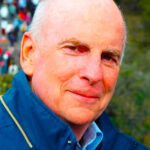 Martin J. Pasqualetti, Arizona State University
Martin J. Pasqualetti, Arizona State University
Martin J. (Mike) Pasqualetti is professor in the School of Geographic Sciences and Urban Planning at Arizona State University. His contributions to geography include his path-breaking research in energy geography, especially the geographies of nuclear power and renewable energy landscapes including those of geothermal, wind, and solar power. Additionally, Pasqualetti has served the scientific community and the public as Chair of Arizona’s Solar Energy Advisory Council, co-authored the Energy Emergency Response Plan and Master Energy Plan for the Arizona Governor’s Office of Energy Policy, and serves on both the Advisory Board of the European Conference of the Landscape Research Group and the Coalition for Action of the International Renewable Energy Agency. His efforts in the field of energy geography have earned him numerous awards including the Alexander and Ilse Melamid Gold Award from the American Geographical Society as well as the Award of Excellence from the Vermont Chapter of the American Society of Landscape Architects and the Great Places Award from the Environmental Design Research Association for his book The Renewable Energy Landscapes: Preserving Scenic Value in our Sustainable Future.
In addition, Pasqualetti is co-editor and contributor to several books including The Ashgate Companion to Energy Geography, Wind Power in View, and The Evolving Landscape: Homer Aschmann’s Geography. These and his more than 100 research articles and reports have led to invitations to address international conference and to advise public agencies including the US Nuclear Regulatory Commission, the US Department of Energy, and the United Kingdom’s Central Electricity Generating Board.
His service to the AAG includes founding and chairing the Energy and Environment Specialty Group, serving as a member of the AAG Meridian book awards committee, and obtaining funding for the Energy and Environment Specialty Group’s annual best paper awards.
We are, therefore, please to bestow upon Martin J. Pasqualetti the title of AAG Fellow.
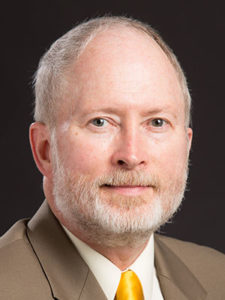 Mark D. Schwartz, University of Wisconsin-Milwaukee
Mark D. Schwartz, University of Wisconsin-Milwaukee
Mark D. Schwartz is Distinguished Professor at the University of Wisconsin-Milwaukee. He is a climatologist who specializes in the sub-discipline of phenology, involving the spring green up and fall senescence of natural vegetation. His work contributes to the broader field of climate change research, and his contributions have led to improved modeling of vegetation in climate models and deeper understanding of the vegetative response to climate change. He has, among many other achievements, helped create a tool to predict the onset of spring, contributed to the Global Warming Report released by the Union of Concerned Scientists, and generally contributed a sound and valuable geographic perspective to climate change research.
Schwartz is also known as “the man of the hour” for the Department of Geography at the University of Wisconsin-Milwaukee. He had barely received tenure, when the University threatened to close the Geography Department. Taking the reins as Department Chair, Schwartz led the unit in a reorganization that resulted in saving Geography at University of Wisconsin Milwaukee, developed strategic alliances with other schools and departments at the University, and allowed the department to grow.
Mark Schwartz is named an AAG Fellow for his strategically important research and for his successful effort to defend and promote geographic research and education at the University of Wisconsin-Milwaukee.
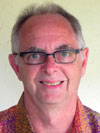
Eric Sheppard, University of California Los Angeles
Eric Sheppard is a Professor of Geography the University of California Los Angeles. Throughout his career, he has been committed to promoting interactions across several subfields in the discipline of geography. Besides his stellar reputation in the field of economic geography, Dr. Sheppard has made important contributions to the literature on the social dimensions of GIS. During his tenure as President of the AAG, he was an advocate and spokesperson for all geographers, across the entire discipline.
Professor Sheppard’s significant impacts include his multiple publications on the social dimensions of GIS, nature of spatiality and relationality and the ontological and epistemological issues surrounding both GIS, and the qualitative/quantitative debates in the discipline. He has served a key role on the Relational Poverty Network, an NSF-funded research coordination network that connects a global group of poverty scholars.
His work with the Advisory Board of the National Center for Geographic Information and Analysis, the National Research Council that resulted in the publication of Rediscovering Geography are major contributions to the discipline. He has served the AAG as its President, Vice President and on numerous AAG committees.
Among the many honors he has received, Dr. Sheppard has been recognized by the AAG with its Distinguished Scholarship Honor, and by the University Of Toronto Association Of Geography Alumni with its Distinguished Alumni Award.
We are therefore pleased to bestow upon Eric Sheppard the title of AAG Fellow.
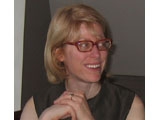 Renee Sieber, McGill University
Renee Sieber, McGill University
Renee Sieber is an Associate Professor at McGill University in the Department of Geography and School of the Environment, where she researches the use and value of information and communications for social change. Over the past two decades, she has made a major contribution to the field of Geography through her sustained interest in participatory and collaborative applications of Geographical Information Systems and Science. Sieber examines applications in geographic information systems for and by poor communities, social movements (particularly the environmental movement), and indigenous groups. Renee has been active in introducing Participatory GIS to an international audience. She was a founding committee member of the AAG Digital Geographies Specialty Group and recently served as co-chair of the international GIScience 2016 conference.
Renee’s publications span a range of GIS applications including tourism, the humanities, rural economic development, semantics, and crowdsourcing data. She has received grants from NASA/Goddard Institute for Space Studies, numerous grants Social Sciences and Humanities Research Council of Canada, and Canadian Foundation for Innovation, among others.
For her excellence in the discipline, she received the Canadian Association of Geographers (Geographic Information Systems and Science Special Interest Group): Lifetime Achievement and GIScience Excellence Award.
We are therefore pleased to bestow upon Renee Sieber the title of AAG Fellow.
The AAG Fellows are chosen by the AAG Honors Committee. The 2018-2019 Honors Committee Members are Wei Li, chair (Arizona State University), Laura Pulido (University of Oregon), Nathan Sayre (University of California Berkeley), Lisa DeChano-Cook (Western Michigan University), Wendy Jepson (Texas A&M University), and Rebecca Lave (Indiana University). Observer members this year, who will rotate in as members next year, are Julie Winkler (Michigan State University), Richard Kujawa (St. Michael’s College), and Julie A. Silva (University of Maryland – College Park).
 “Complex organizations have complex interests and responsibilities, especially in the 21st century… Together, we Geographers have worked diligently over the last several years to shine a light on equity and banish harassment and bullying from our meetings, our places of work, and our lives. We have more work to do, but we do have a heightened awareness, and a strong, renewed resolve to move forward with justice.”
“Complex organizations have complex interests and responsibilities, especially in the 21st century… Together, we Geographers have worked diligently over the last several years to shine a light on equity and banish harassment and bullying from our meetings, our places of work, and our lives. We have more work to do, but we do have a heightened awareness, and a strong, renewed resolve to move forward with justice.”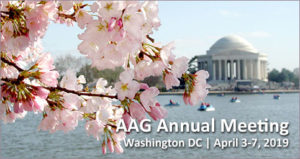 The 2019 AAG Annual Meeting hosted 8,500 students and professionals in Washington, DC. Approximately 30% of attendees came from 78 different countries to share the latest in research, policy, and applications in geography, sustainability, and GIScience. View our online gallery of photos to revisit the featured themes, special guest speakers and events, and the 120+ awards presented at the conference. Videos of several special sessions including the Opening Session and Presidential Plenary, Eric Holder’s Keynote, Atlas Awardee Carla Hayden, AAG Executive Director Doug Richardson’s Retirement Remarks, the Past President’s Address, and Recalling Gilbert White are available on the AAG YouTube Channel.
The 2019 AAG Annual Meeting hosted 8,500 students and professionals in Washington, DC. Approximately 30% of attendees came from 78 different countries to share the latest in research, policy, and applications in geography, sustainability, and GIScience. View our online gallery of photos to revisit the featured themes, special guest speakers and events, and the 120+ awards presented at the conference. Videos of several special sessions including the Opening Session and Presidential Plenary, Eric Holder’s Keynote, Atlas Awardee Carla Hayden, AAG Executive Director Doug Richardson’s Retirement Remarks, the Past President’s Address, and Recalling Gilbert White are available on the AAG YouTube Channel. The 2019 World Geography Bowl was held during the AAG Annual Meeting on Thursday, April 4 at 7 PM. The 30th annual round robin quiz competition concluded with student teams from the Mid-Atlantic AAG Division and the Southeast Division of the AAG competing head to head, with team MAD pulling out the victory. MAD’s victory marks back to back championships for the division. The World Geography Bowl supports close to 60 students to help offset the costs of attending the AAG Annual Meeting.
The 2019 World Geography Bowl was held during the AAG Annual Meeting on Thursday, April 4 at 7 PM. The 30th annual round robin quiz competition concluded with student teams from the Mid-Atlantic AAG Division and the Southeast Division of the AAG competing head to head, with team MAD pulling out the victory. MAD’s victory marks back to back championships for the division. The World Geography Bowl supports close to 60 students to help offset the costs of attending the AAG Annual Meeting.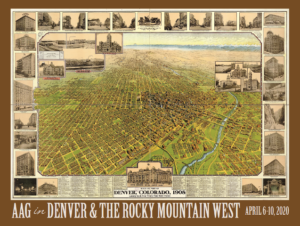 Join us for the mile high meeting. Mark your calendar for the AAG Annual Meeting in Denver on April 6-10, 2020. We invite you to organize and participate in sessions, workshops, field trips, special events, and activities. Look for the call for papers in July 2019. We look forward to seeing you in the Rocky Mountains!
Join us for the mile high meeting. Mark your calendar for the AAG Annual Meeting in Denver on April 6-10, 2020. We invite you to organize and participate in sessions, workshops, field trips, special events, and activities. Look for the call for papers in July 2019. We look forward to seeing you in the Rocky Mountains!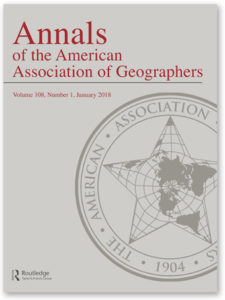 The most recent issue of Annals of the American Association of Geographers has been published online (
The most recent issue of Annals of the American Association of Geographers has been published online (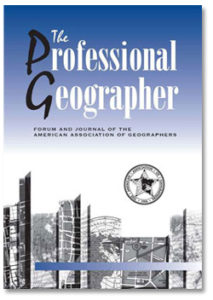
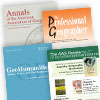 In addition to the most recently published journal, read the latest issue of the other AAG journals online:
In addition to the most recently published journal, read the latest issue of the other AAG journals online: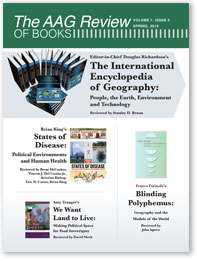 The latest issue of The AAG Review of Books is now available (
The latest issue of The AAG Review of Books is now available (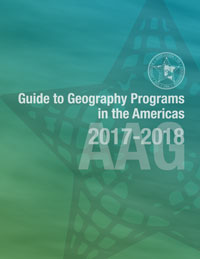 The AAG is continuing to accept entries from geography programs for the 2019 edition of the Guide to Geography Programs in the Americas. The deadline for submitting a listing has been extended to June 1, 2019.
The AAG is continuing to accept entries from geography programs for the 2019 edition of the Guide to Geography Programs in the Americas. The deadline for submitting a listing has been extended to June 1, 2019.
 Do you ever wonder what it is like to be the only GIS analyst at a company? This month learn more about being the primary GIS analyst with Daniel McGlone, Senior GIS Analyst and Cicero Data Manager, at Azavea. Daniel explains his multifaceted career, one of the reasons why he wanted to work in geography, and some of the moments along his path to his current employment.
Do you ever wonder what it is like to be the only GIS analyst at a company? This month learn more about being the primary GIS analyst with Daniel McGlone, Senior GIS Analyst and Cicero Data Manager, at Azavea. Daniel explains his multifaceted career, one of the reasons why he wanted to work in geography, and some of the moments along his path to his current employment.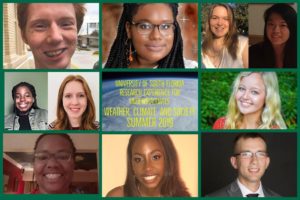
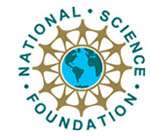 The NSF has recently circulated a Dear Colleagues Letter seeking those interested in establishing Research Coordination Networks for the Coastlines and People (CoPe) Project first explored in September 2018. One page summaries of projects and programs related to CoPe are being accepted until May 31, 2019 with a full proposal deadline of June 28, 2019.
The NSF has recently circulated a Dear Colleagues Letter seeking those interested in establishing Research Coordination Networks for the Coastlines and People (CoPe) Project first explored in September 2018. One page summaries of projects and programs related to CoPe are being accepted until May 31, 2019 with a full proposal deadline of June 28, 2019. The AAG’s Geography Faculty Development Alliance (GFDA) will once again offer a valuable in-depth opportunity for early career professionals and department leaders in Geography to learn and engage during its annual workshops June 23-29, 2019, at George Washington University in Washington, D.C. The shorter four-day workshop for department leaders (June 26-29) will overlap with the week-long conference for early career attendees providing a full career spectrum of exercises and activities.
The AAG’s Geography Faculty Development Alliance (GFDA) will once again offer a valuable in-depth opportunity for early career professionals and department leaders in Geography to learn and engage during its annual workshops June 23-29, 2019, at George Washington University in Washington, D.C. The shorter four-day workshop for department leaders (June 26-29) will overlap with the week-long conference for early career attendees providing a full career spectrum of exercises and activities. Redrawing congressional district boundaries, an activity that happens every ten years following the decennial census, may be the most consequential application of geography in the United States. As congressional elections have become less competitive, many are raising questions about the current boundaries of congressional districts… Esri’s Policy Maps team formed the research question: How much are current congressional boundaries defined by physical features (mountains and rivers), infrastructure (highways and railroads), or other existing administrative boundaries (county and place boundaries)?
Redrawing congressional district boundaries, an activity that happens every ten years following the decennial census, may be the most consequential application of geography in the United States. As congressional elections have become less competitive, many are raising questions about the current boundaries of congressional districts… Esri’s Policy Maps team formed the research question: How much are current congressional boundaries defined by physical features (mountains and rivers), infrastructure (highways and railroads), or other existing administrative boundaries (county and place boundaries)?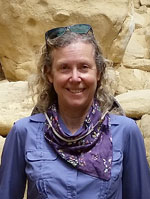
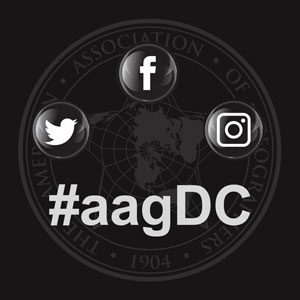 We’re getting closer to the 2019 AAG Annual Meeting! Whether you will be attending the meeting all week, for a few days, or looking to follow the action from afar, there are plenty of ways to get involved using social media. Social media is a great way for seasoned conference goers and newcomers alike to network, report on new research, engage in lively debate with those inside and outside of the discipline, and find out what’s going on during the largest geography conference in the world! Start planning your #aagDC social media strategy today with these helpful guidelines!
We’re getting closer to the 2019 AAG Annual Meeting! Whether you will be attending the meeting all week, for a few days, or looking to follow the action from afar, there are plenty of ways to get involved using social media. Social media is a great way for seasoned conference goers and newcomers alike to network, report on new research, engage in lively debate with those inside and outside of the discipline, and find out what’s going on during the largest geography conference in the world! Start planning your #aagDC social media strategy today with these helpful guidelines!


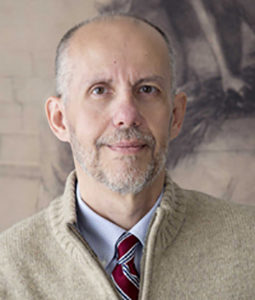 Alex Papadopoulos, DePaul University
Alex Papadopoulos, DePaul University J. Clark Archer, University of Nebraska Lincoln
J. Clark Archer, University of Nebraska Lincoln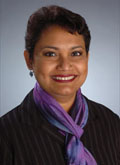

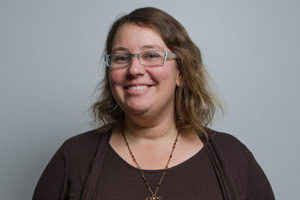 Elizabeth Watson, Drexel University
Elizabeth Watson, Drexel University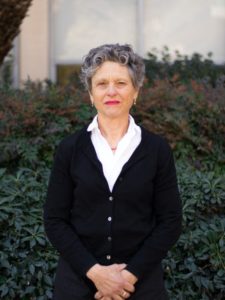 Stephanie Pincetl, University of California Los Angeles
Stephanie Pincetl, University of California Los Angeles Susan Cutter, University of South Carolina.
Susan Cutter, University of South Carolina.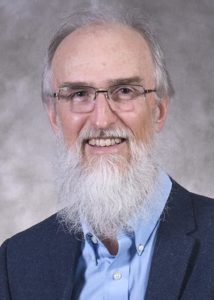 Alan MacEachren, the Pennsylvania State University
Alan MacEachren, the Pennsylvania State University Western Michigan University has a clearly outlined commitment to shared governance and cultivates robust engagement with the East Lakes Division of the AAG. An annual curricular retreat regularly sets Departmental goals, and graduate students have a voice through formal regular meetings with the Chair and Graduate Director, and informal monthly lunches with Departmental faculty.
Western Michigan University has a clearly outlined commitment to shared governance and cultivates robust engagement with the East Lakes Division of the AAG. An annual curricular retreat regularly sets Departmental goals, and graduate students have a voice through formal regular meetings with the Chair and Graduate Director, and informal monthly lunches with Departmental faculty.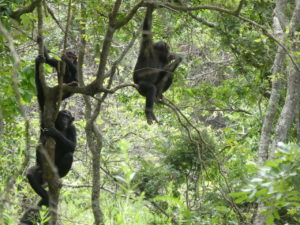
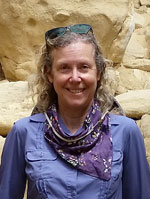
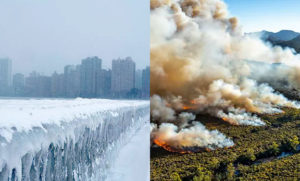

 John Agnew, University of California, Los Angeles
John Agnew, University of California, Los Angeles Anthony J. Brazel, Arizona State University
Anthony J. Brazel, Arizona State University



 Daniel Griffith, University of Texas at Dallas
Daniel Griffith, University of Texas at Dallas
 Thomas Mote, University of Georgia
Thomas Mote, University of Georgia Martin J. Pasqualetti, Arizona State University
Martin J. Pasqualetti, Arizona State University Mark D. Schwartz, University of Wisconsin-Milwaukee
Mark D. Schwartz, University of Wisconsin-Milwaukee
 Renee Sieber, McGill University
Renee Sieber, McGill University